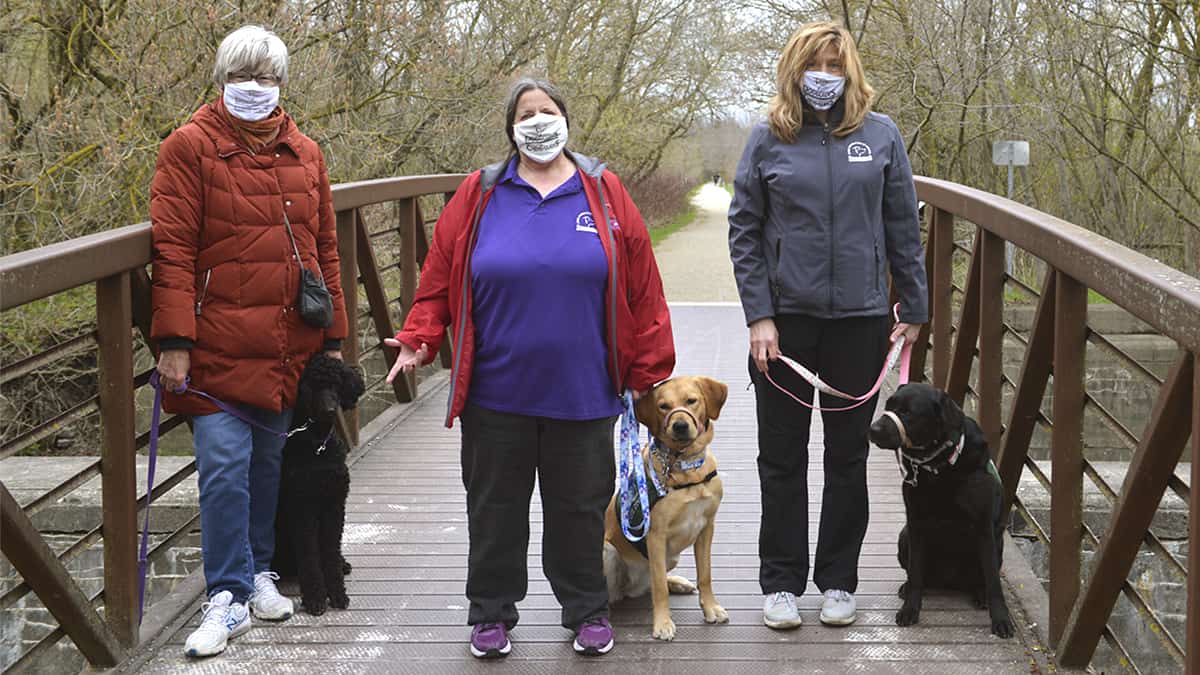The walk may not be in-person for the second year in a row, but that is not stopping the Floradale Friends of Dog Guides Lions Branch Club from participating once again in the Pet Valu Virtual Walk for Dog Guides.
In support of the Lions Foundation of Canada Dog Guides, the annual walk looks to raise money for the organization that trains dogs for people living with a variety of disabilities. The second virtual walk sees participating Lions Clubs and individuals within the community who want to raise money for the organization.
The Floradale club has not been around long and is already participating in their second walk. With a goal set at $4,000, the club has already exceeded their goal as they look to continue raising money for Dog Guides Canada.
Deb Cserhalmi, walk organizer with the Floradale branch club, says the importance of supporting a fundraiser like this is life-changing for those who are truly in need of a dog guide.
“They (Dog Guides Canada) first started off with canine vision and that was the only one they did now they’re up to seven. So, we do canine vision, hearing, service for people with physical disabilities, seizure response, diabetic detection, autism, and now we have a new support dog. The support dog is used by facilities like police and the courts to have a dog there so that when people speak, they’re calm and can relax a little more,” said Cserhalmi. “All our fundraising is dependent on volunteers; we get no government funding at all, and these dogs truly change people’s lives. Whether it’s someone who’s blind and can’t get out and walk, whether it’s someone having a diabetic episode, the dog can detect that. And for kids with autism, they have a best friend forever.”
On average, it costs about $25,000 to provide a dog guide, the cost until they retire. She says most of the money goes towards their training and, amortized over a working life of about 10 years, the cost does not end up looking too bad.
Aside from not being able to get out and fundraise as easily as they could before COVID-19, Cserhalmi says a problem the organization has faced over the last year is not being able to graduate their dogs as easily as they could before.
“A major thing is that they can only graduate dogs in Ontario that are within an hour, an hour and a half of the school, because the clients can’t stay overnight. So, people either have to come in and train with our dogs, or the trainer’s go to the homes and learn in home.”
The walk is currently ongoing and will run until May 28.
Click here to sign up for the walk, or to donate to the club.









